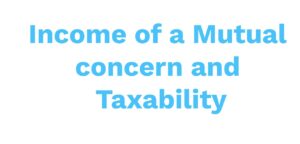The ITAT, New Delhi in ACIT v. Sh. Sanjay Choudhary [ITA No.1274/Del/2020 dated January 23, 2023] has affirmed the decision of the Appellate Authority holding that the exemption claimed under Section 54F of the Income Tax Act, 1961 (“the IT Act”) would be granted to the assessee on its residential properties and assessee cannot be said to have not ‘Purchased’ the properties for not having the sale deed executed in its favour. Held that, acquisition of the properties by the assessee otherwise then by the registered sale deeds fall in the ambit of word ‘purchase’. Further held that, the nature and extent of construction like house, plot, cottage, farm house or villa are only indicative of the fact that property purchased is not a commercial property and is not an agricultural property.
Facts:
Sh. Sanjay Choudhary (“the Respondent”) had filed the Return of Income (“ROI”) for the Assessment Year (“A.Y.”) 2013-14 declaring total income of INR 16,94,792/- and the assessment was completed as per Section 143(3) by the Revenue Department (“the Appellant”) on March 28, 2016, computing the taxable capital gain at INR 1,23,01,476/-.
The Principal Commissioner of Income Tax (“PCIT”) was of the view that the Respondent had made a wrong calculation of capital gains, primarily for reason that it considered the property to be not held for 36 months and accordingly vide order dated March 5, 2018 directed to withdraw the deduction claimed and granted to the Respondent and remanded the issue back to be examine afresh.
Thereafter, the Appellant concluded that the capital gain was a Long Term Capital Gain (“LTCG”), and disallowed the exemption claimed under Section 54F of the IT Act vide assessment order dated December 31, 2018, on the ground that the three properties which the Respondent claimed to have purchased out of LTCG, were not covered for the ‘purchase’ under Section 54F of the IT Act. Further, initiated penalty proceedings under Section 271(1)(c) for furnishing inaccurate particulars of the income.
The Respondent preferred an appeal wherein, the Appellate Authority granted the benefit of Section 54F of the IT Act to the Respondent vide order dated January 29, 2020 (“the Impugned Order”).
Being aggrieved, this appeal has been filed by the Appellant, on the ground that, the Appellate Authority erred by not deleting the disallowance and considering the three properties acquired by the Respondent to be duly purchased, as they do not fall under the category of residential properties. Further contended that, the order passed by the PCIT was not appealed against, and hence became final as the Appellate Authority did not cancel or annul it.
Issue:
Whether exemption under Section 54F of the IT Act would be available for the properties purchased by the Respondent?
Held:
The ITAT, New Delhi in ITA No.1274/Del/2020 held as under:
- Noted that, the Appellant had discredited the purchase of three properties on the basis of documents other than sale deeds.
- Observed that, the execution of the sale deed or any document of Conveyance in favour of vendee, only transfers the ‘legal title’ for the purpose of civil consequences. The ownership of a property is a bundle of interests and apart from the registered sale deed or any other document of conveyance, vendee can acquire interest in semblance of right of owner by documents like GPA or agreement to sell.
- Opined that, the acquisition of the three properties by the Respondent, other than through registered sale deeds, falls within the ambit of the word “purchase” used in Section 54/54F of the IT Act.
- Stated that, the Appellant did not doubt the payments made by the Respondent out of LTCG for the purchase of three properties, then for not having the sale deed executed in the Respondent’s’ favour does not mean that the Respondent did not ‘purchase’ the properties as per statutory compliance.
- Relied on the judgement of ITAT, Jaipur in ACIT V. Om Prakash Gyal [ITA NO. 647/JP/2011 dated February 2, 2012] wherein, it was held that only requirement for claiming exemption under Section 54F of the IT Act is construction of residential house and it does not matter that house constructed is on agricultural land.
- Held that, the three properties of the Respondent are considered as a residential property as nature and extent of construction or nomenclature like house, plot, cottage, farm house or villa are only indicative of the fact that property purchased is neither a commercial property nor is an agricultural property.
- Upheld the decision of the Appellate Authority.



 Total views : 7776
Total views : 7776

